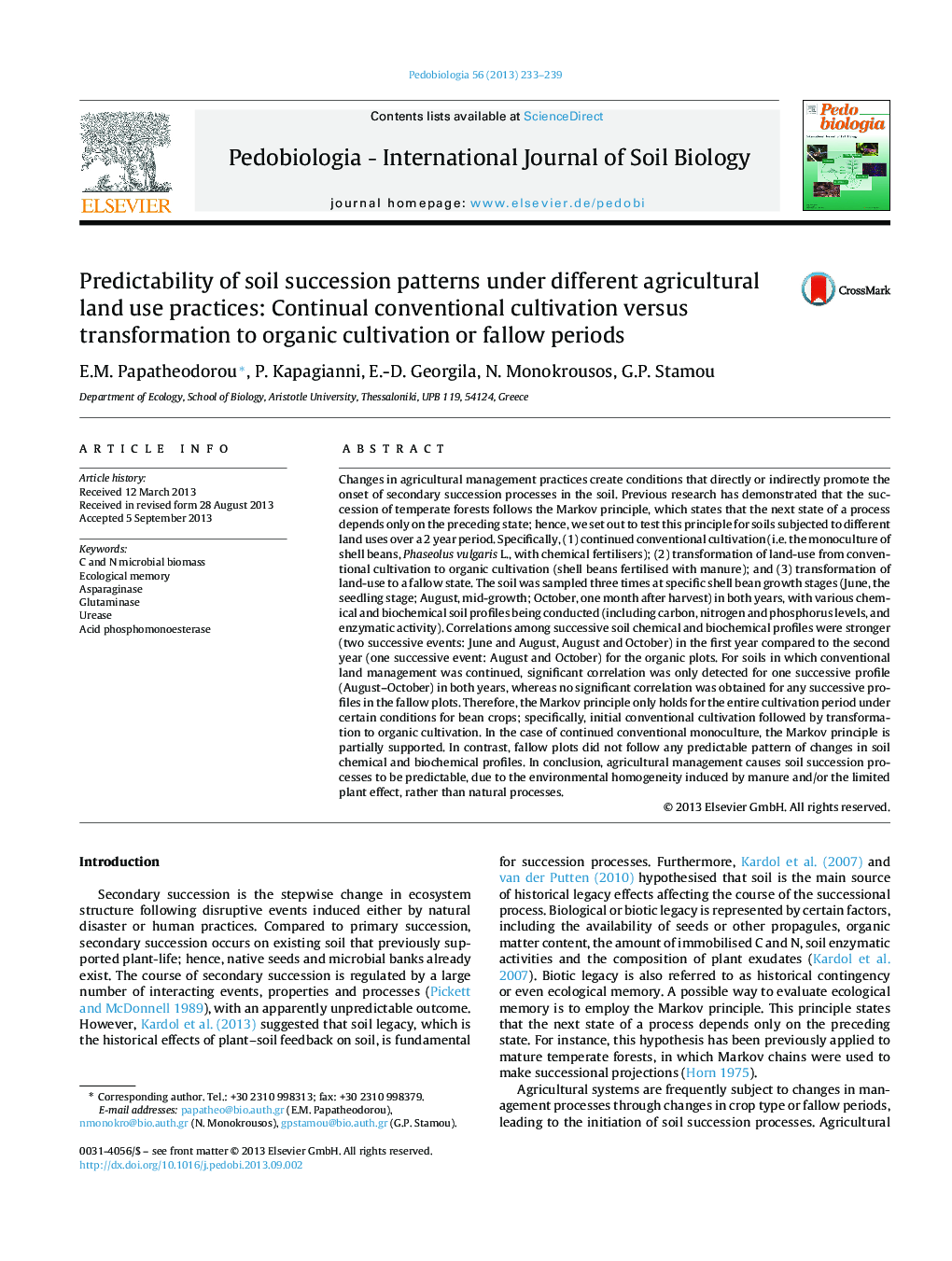| کد مقاله | کد نشریه | سال انتشار | مقاله انگلیسی | نسخه تمام متن |
|---|---|---|---|---|
| 2061090 | 1544028 | 2013 | 7 صفحه PDF | دانلود رایگان |

Changes in agricultural management practices create conditions that directly or indirectly promote the onset of secondary succession processes in the soil. Previous research has demonstrated that the succession of temperate forests follows the Markov principle, which states that the next state of a process depends only on the preceding state; hence, we set out to test this principle for soils subjected to different land uses over a 2 year period. Specifically, (1) continued conventional cultivation (i.e. the monoculture of shell beans, Phaseolus vulgaris L., with chemical fertilisers); (2) transformation of land-use from conventional cultivation to organic cultivation (shell beans fertilised with manure); and (3) transformation of land-use to a fallow state. The soil was sampled three times at specific shell bean growth stages (June, the seedling stage; August, mid-growth; October, one month after harvest) in both years, with various chemical and biochemical soil profiles being conducted (including carbon, nitrogen and phosphorus levels, and enzymatic activity). Correlations among successive soil chemical and biochemical profiles were stronger (two successive events: June and August, August and October) in the first year compared to the second year (one successive event: August and October) for the organic plots. For soils in which conventional land management was continued, significant correlation was only detected for one successive profile (August–October) in both years, whereas no significant correlation was obtained for any successive profiles in the fallow plots. Therefore, the Markov principle only holds for the entire cultivation period under certain conditions for bean crops; specifically, initial conventional cultivation followed by transformation to organic cultivation. In the case of continued conventional monoculture, the Markov principle is partially supported. In contrast, fallow plots did not follow any predictable pattern of changes in soil chemical and biochemical profiles. In conclusion, agricultural management causes soil succession processes to be predictable, due to the environmental homogeneity induced by manure and/or the limited plant effect, rather than natural processes.
Journal: Pedobiologia - Volume 56, Issues 4–6, July–November 2013, Pages 233–239